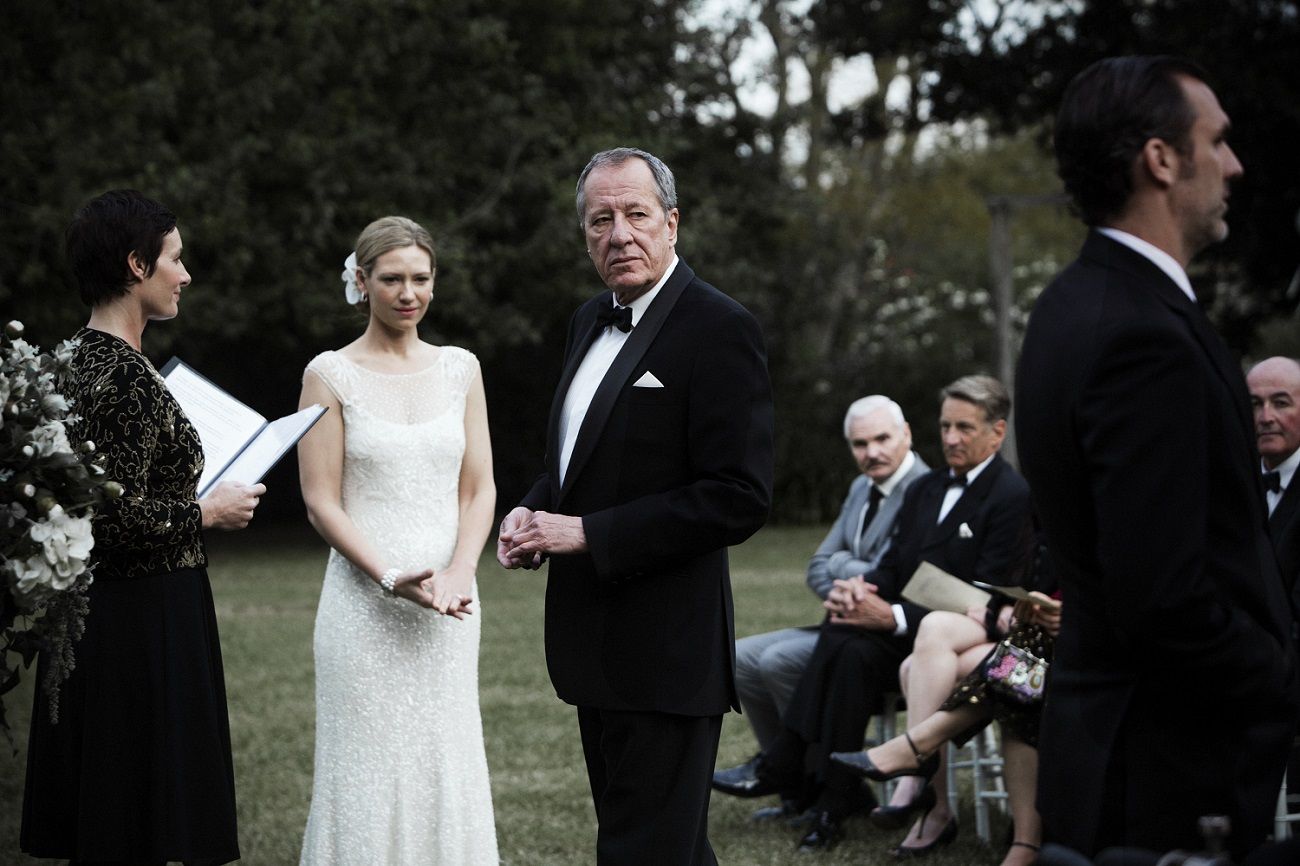One of the main strengths of debutant Simon Stone’s The Daughter is its heavily atmospheric sense of place. Swapping Henrik Ibsen’s 19th century Oslo setting from The Wild Duck (on which this is loosely based) to a rural logging town in contemporary Australia, underpins the timeless nature of these events that could easily be transposed anywhere, anytime.
The father’s in no rush
A deceptively gentle opening conceals the drama’s operatic destination. A hunter (Rush) in his 60s fires a rifle and clips the wings of a duck. Another man of a similar age, Walter (Neill), takes that duck and nurses it back to health. What then follows is a story that details the ways in which the families of these two patriarchs are inextricably linked.
‘The Hunter’ is Henry, a man of some stature, whose family has been employing the small community for a century at their logging factory – although we witness this era come to an end as the plant is forced to close.
Walter, on the other hand, has done time for embezzling company funds. His son, Oliver (Leslie), works at the hunter’s plant. Both Walter and his son live together with his son’s wife (Otto) and their teenage daughter, Hedvig (Young).
The son’s homecoming
The narrative wheels are set in motion when the hunter’s son, Christian (Schneider), returns home from the US, after many years, for the occasion of his father’s imminent marriage to a much younger woman. For Christian, whose mother killed herself and whose own wife is now leaving him, this marriage conjures conflicted feelings.
When he’s reunited with Oliver, his close childhood friend, he’s welcomed into that man’s family with open arms. However, confronted by the warmth and love in Walter and Oliver’s family, which so sharply contrasts with his own, Christian’s jealousy unleashes a long-guarded secret which promptly starts to unravel both families with tragic consequences.
The mother’s ‘Lantana’
Asides from the country of origin and the casting of Geoffrey Rush, there is a tonal resemblance to 2001’s Lantana. The photography is similarly stylised: quietly assured without ever being showy. There is no homicide, however, as this is a drama of a more ordinary nature, albeit heightened.
The universality of themes related to familial dysfunction, and the betrayal of trust, work both for and against The Daughter.
Although immediately engaging, the pitfalls of employing well-worn themes, without (presumably) an author’s grounding in personal, first-hand experience is that they form a breeding ground for tired tropes and generic dialogue.
This is true here during several scenes of familial conflict in which lines such as “You never understood me” or “Please, it’s not what you think!” are used with such frequency that Stone’s melodrama veers perilously close to soap opera. Fortunately for Stone, for the most part, his well-chosen cast can conceal inadequate writing with knockout performances.
The Daugher’s … muddled
Scenes with less obvious agendas, for example between Hedvig and her father, are charming in their playfulness, while others, overly concerned with reaching a predetermined plot point, come at the cost of their believability. Portions of dialogue are rendered awkward and forced.
Nevertheless, the actors are usually up to the challenge of nailing the emotional truth of their predicament so that Stone’s intentions are made clear, even if his execution is sometimes muddled.













